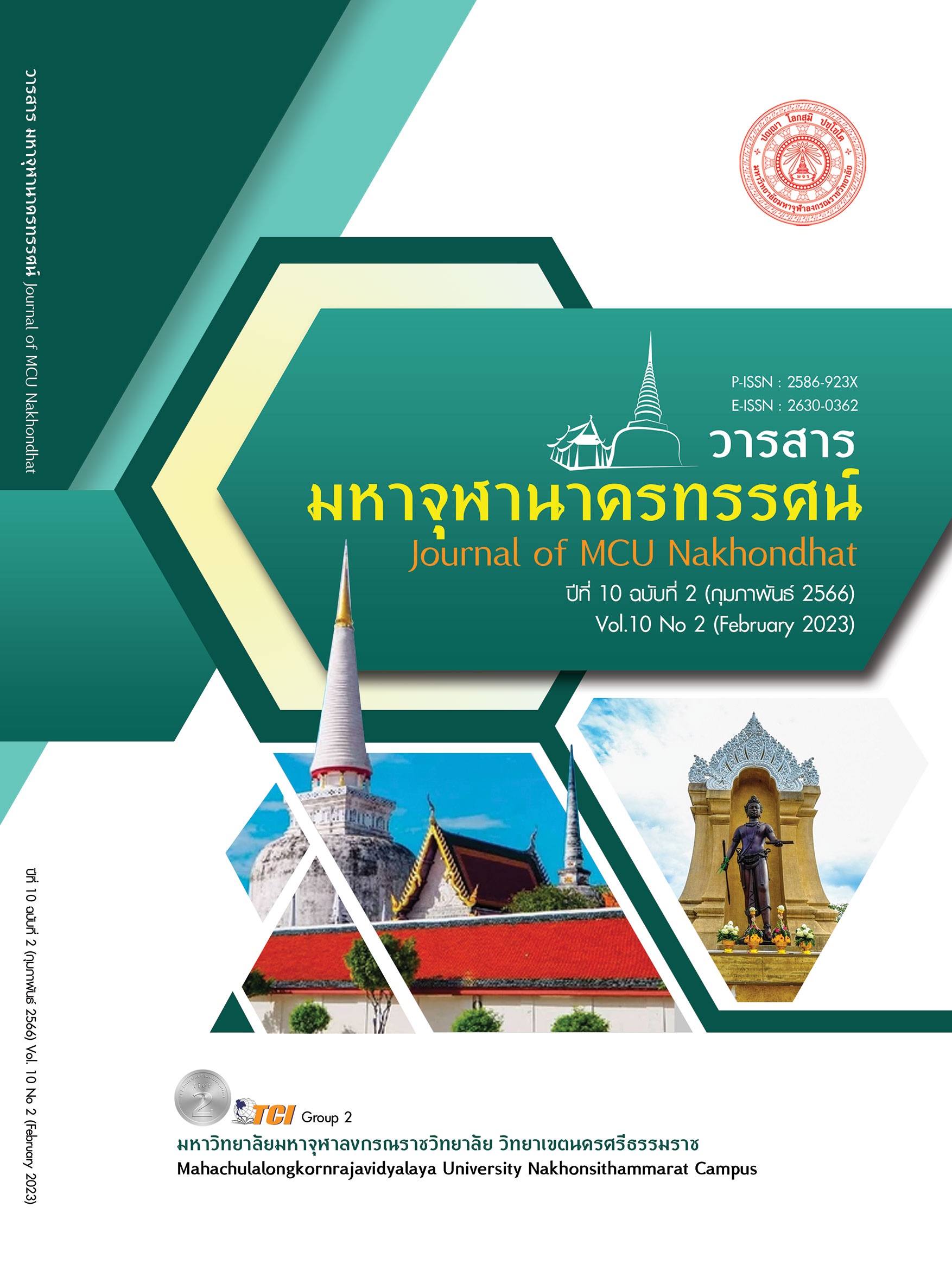TEACHER DEVELOPING OF CONSTRUCTIONISM LEARNING PROCESS A CASE STUDY: LAMPANG INTER TECH
Main Article Content
Abstract
This research article aimed to develop teachers of Lampang Inter-tech College to be able to design the constructionism learning process. This research employed action research and the implementation consists of 4 steps: planning, action, observation, and reflection. The target group was teachers of Lampang Inter-tech College, selected through a purposive sampling of 30 respondents in total. The research tools were participatory observation forms, interview forms, meeting recording forms, conversation record form. Data were analyzed by enumerating key findings and were examined using triangulation technique. The research results showed that the problem about the condition of the learning management of the college in teachers' learning management was not organized in constructionism. Students did not participate in learning activities as they should. The production of innovative educational materials and classroom research by teachers were less active. Teachers used relatively few authentic assessments for their respective classes. Teachers expect to get assistance from those who know or those who have succeeded in learning management to guide the way to be able to build constructionism learning process and able to provide continuous supervision and follow-up. The results of the teacher development in learning management shows can be concluded that the teacher developing of constructionism learning process was appropriate and in line with the needs of teachers. It created unity and shared responsibility that enabled the teacher's development in learning management proceed effectively with good success. Teachers gained understanding and skills in learning management, and they were able to develop learning management through constructionism learning process for everyone.
Article Details

This work is licensed under a Creative Commons Attribution-NonCommercial-NoDerivatives 4.0 International License.
References
จักรพงษ์ กล่อมปัญญา. (2561). การจัดการเรียนรู้อาเซียนศึกษาแบบผสมผสานตามแนวคอนสตรัคชันนิซึมเพื่อส่งเสริมทักษะการคิดในศตวรรษที่ 21 สำหรับนักเรียนชั้นมัธยมศึกษาปีที่ 4. ใน วิทยานิพนธ์การศึกษามหาบัณฑิต สาขาวิชาหลักสูตรและการสอน. มหาวิทยาลัยบูรพา.
จิรัฏฐ์ สวัสดิพัชรกุล และสัญชัย พัฒนสิทธิ์. (2560). ผลการใช้รูปแบบการเรียนการสอนตามแนวคอนสตรัคชั่นนิซึมเพื่อพัฒนาความคิดสร้างสรรค์ ของนักศึกษาอาชีวะเกษตรของไทย. วารสารวิชาการครุศาสตร์อุตสาหกรรม พระจอมเกล้าพระนครเหนือ, 8(1), 231-240.
ถนอมพร เลาหจรัสแสง. (2550). นิยามเลิร์นนิง อ็อบเจกต์ เพื่อการออกแบบพัฒนา สื่ออิเล็กทรอนิกส์. วารสาร เทคโนโลยีและสื่อสารการศึกษา มหาวิทยาลัยสุโขทัยธรรมาธิราช, 4(4), 11-20.
ปุญชรัสมิ์ วังน้อย และคณะ. (2560). ผลของการใช้สื่อการเรียนรู้อินโฟกราฟิกเคลื่อนไหว โดยใช้ทฤษฎีคอนสตรัคชั่นนิซึ่ม เพื่อพัฒนาทักษะทางสังคม ของนิสิตปริญญาตรีมหาวิทยาลัยเกษตรศาสตร์. วารสาร วิชาการครุศาสตร์อุตสาหกรรม พระจอมเกล้าพระนครเหนือ, 8(2),127-135.
พิสิฐ เทพไกรวัล. (2564). บทบาทของครูกับการจัดการเรียนรู้ในศตวรรษที่ 21. วารสาร วิทยาลัยบัณฑิตเอเชีย, 11(4),10-22.
เลขาธิการสภาการศึกษา กระทรวงศึกษาธิการ. (2560). ถอดบทเรียนการพัฒนาการเรียนรู้เพื่อสร้างสรรค์ด้วยปัญญา (Constructionism) ของสถานศึกษา ชุมชน ภาคธุรกิจและอุตสาหกรรม. กรุงเทพมหานคร: บริษัท 21 เซ็นจูรี่ จำกัด.
วรรณี แกมเกตุ. (2551). วิธีวิทยาการวิจัยทางพฤติกรรมศาสตร์. กรุงเทพมหานคร: สำนักพิมพ์จุฬาลงกรณ์มหาวิทยาลัย.
วิจารณ์ พานิช. (2555). วิธีการสร้างการเรียนรู้ในศตวรรษที่ 21. กรุงเทพมหานคร: มูลนิธิสดศรี-สฤษดิ์วงศ์.
สำนักงานเลขาธิการสภาการศึกษา. (2560). กระทรวงศึกษาธิการ. แผนการศึกษาแห่งชาติ พ.ศ. 2560-2579. กรุงเทพมหานคร: พริกหวานกราฟฟิค จํากัด.
สุชิน เพ็ชรักษ์. (2544). การจัดกระบวนการเรียนรู้เพื่อสร้างสรรค์ด้วยปัญญาในประเทศไทย. กรุงเทพมหานคร: องค์การค้าคุรุสภา.


